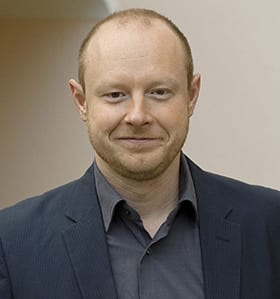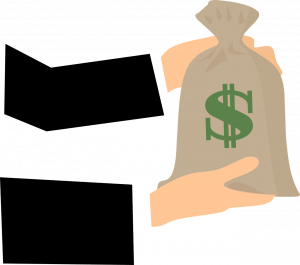“…Quite often these so-called “free choices” that we make—they’re not free at all.”
An Interview with Christian Ruff, PhD
Professor of Neuroeconomics and Decision Neuroscience; University of Zurich
By: Michelle Johnson (3/29/19)
When you were younger, did you know you wanted to be a scientist?
It was always clear that I was interested in how humans work; I was actually drawn between different approaches. For a while I thought history would be nice, to think about why we always have wars. But it was pretty clear right from the start it was going to be either psychology or medicine.
What are some of the main questions driving you right now?
In general, I’m really interested in how we make decisions. From all the things that we could possibly do at any moment in time, how do we select the one thing that we do want to do? At the moment, I’m most interested in social influences because quite often these so-called “free choices” that we make—they’re not free at all. Quite often they’re made to comply with the expectations that others have of us, either in society or in small groups or perhaps even what we think others may expect of us, even if they don’t. I’m interested in all aspects of these mechanisms, how they’re substantiated in neural circuits, how the brain deals with the uncertainties that come with all of these things, but in particular, how all the information that we need to make these choices comes together.
What are some examples of these types of decisions and social expectations?
[They could be] very simple choices, for example, what type of food you want to eat. In terms of social norms, [an example might be] if I gave you an amount of money and you could divide it however you want between yourself and another person. You’ve never seen them before, and you will never see them again, you’re just randomly assigned to them. People differ a lot in how much money they give someone el se and how much to keep for themselves. Why is that? Where does that difference come from? There are all these complex norms that we have, such as you should not keep all the money for yourself even though from a purely self-interested point of view, you should keep it all.
se and how much to keep for themselves. Why is that? Where does that difference come from? There are all these complex norms that we have, such as you should not keep all the money for yourself even though from a purely self-interested point of view, you should keep it all.
Do you find that these social norms vary from region to region? Or are they more universal?
The interesting thing is that many social norms are universal. You can truly say that. People have done studies about many of these norms in the rainforests of Papau New Guinea and many different countries. Fairness or honesty, for example, are norms that are genuinely shared everywhere, although they may be culturally informed; there may be certain rituals or ways of being fair in some countries that are expressed differently in other countries.
Has studying this affected your own behaviors and views on decision-making?
Definitely. I’m much more forgiving of my own decision-making deficiencies. It’s a lot clearer to me now that there really is no way to define what makes a decision optimal, that there is no optimal decision. It’s also become clear to me that what the right decision is in one moment may not be the right decision in the other moment, simply because the processes that generate the decisions are somewhat volatile and probabilistic. You may just have to go with one decision and tell yourself, “Given everything that I’ve taken into account, that’s the best I can do and that’s it.”
What’s the best piece of advice you’ve ever received?
The best piece of advice I ever received is to be generous, especially in science. [Science] only works if you share knowledge. The tendencies that people may have in science to be overly-protective of what they’re working on or their methods always backfire. It makes it less fun, it makes it less inspiring, and ultimately, it’s not good for you. You learn less, you’re presumably also less in touch with people—you’re less successful in every way. So be generous and be forgiving.
To learn more about Dr. Ruff and his work, click here.
Click here to go back to the “Interviews with Scientists” page.
